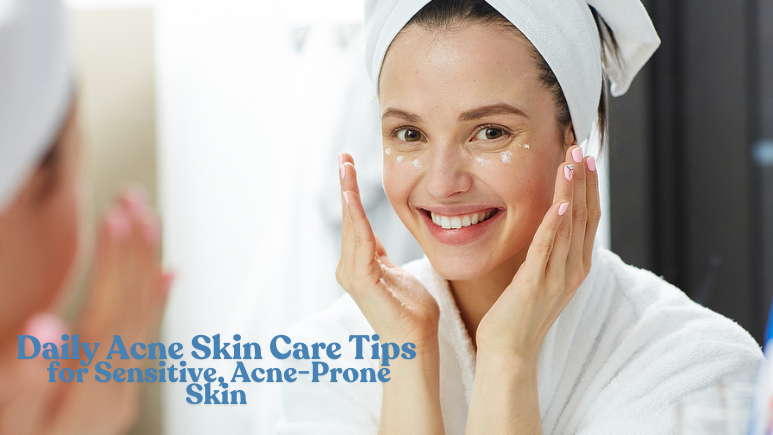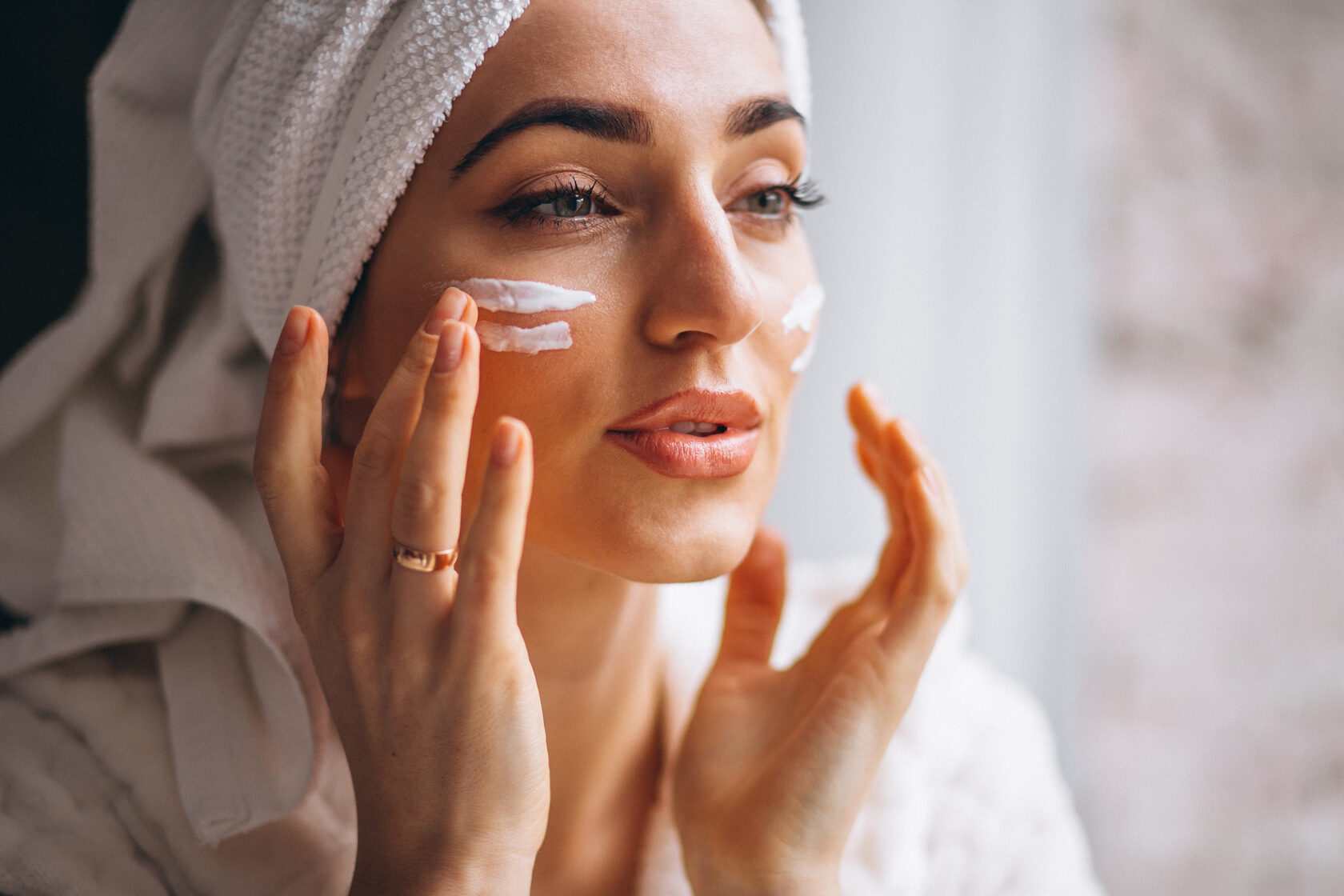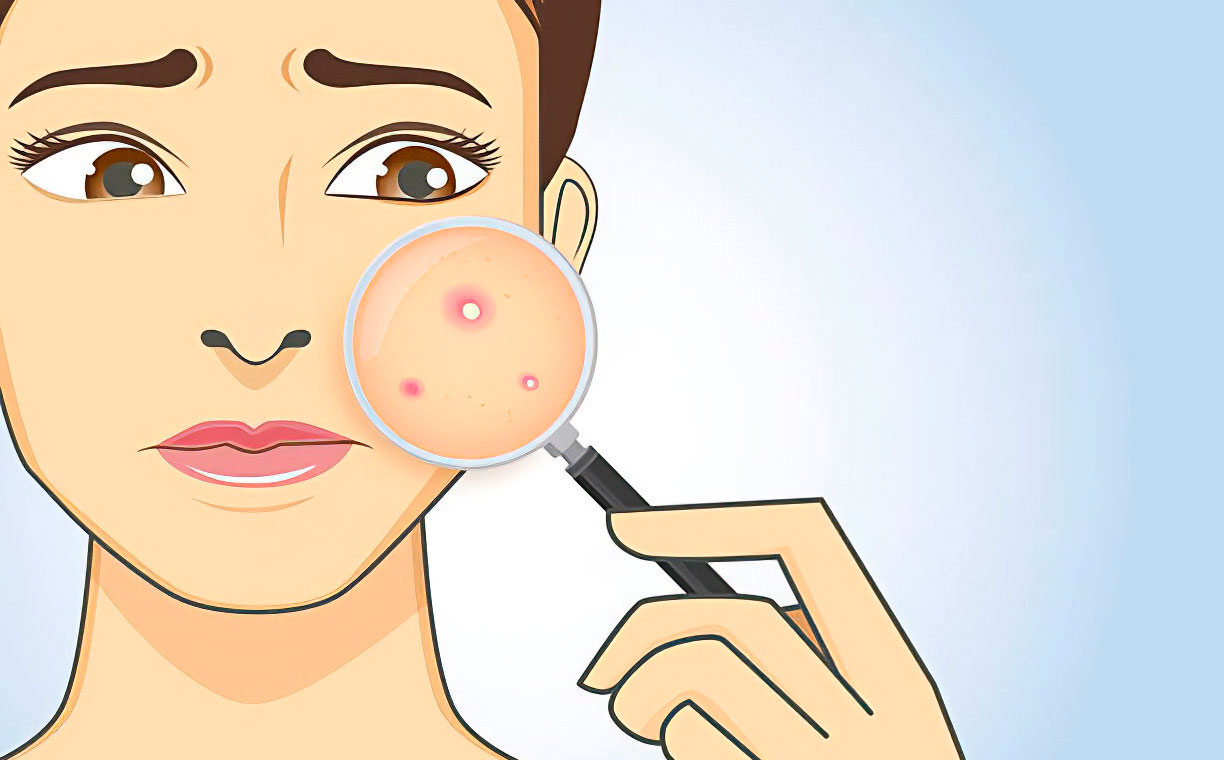New Year Sale upto 55% Off
Shopping Cart
Great medicine with best rxmedilife branded, 100% genuine pharmacy
New Year Sale upto 55% Off
Great medicine with best rxmedilife branded, 100% genuine pharmacy

Managing sensitive, acne-prone skin can feel like walking a tightrope. You want to control breakouts without triggering redness, irritation, or tightness. The good news? With a gentle, consistent routine and the right products, you can calm your skin and reduce acne flare-ups. Below are daily skin care tips tailored for sensitive, acne-prone skin to help you achieve a clearer, healthier complexion.
Start your day with a gentle, hydrating cleanser to remove overnight impurities without stripping your skin. Look for non-foaming, fragrance-free cleansers with soothing ingredients like ceramides or glycerin.
Recommendation: Try CeraVe Hydrating Cleanser or La Roche-Posay Toleriane Hydrating Gentle Cleanser.
Tip: Wash with lukewarm water and use your fingertips to avoid irritation. Over-cleansing can disrupt your skin barrier, so stick to cleansing once in the morning.
A toner can help balance your skin’s pH and remove residual cleanser, but for sensitive skin, choose an alcohol-free, hydrating option. Toners with salicylic acid (0.5-1%) can gently exfoliate and unclog pores without causing irritation.
Recommendation: Murad Clarifying Toner or The Ordinary Glycolic Acid 7% Toning Solution (used 2-3 times a week to start).
Tip: Apply with a cotton pad and avoid overusing exfoliating toners to prevent dryness.
Incorporate a lightweight serum or treatment to address acne while soothing sensitivity. Ingredients like niacinamide reduce inflammation and balance oil production, while low-dose salicylic acid or azelaic acid can unclog pores gently.
Recommendation: The Ordinary Niacinamide 10% + Zinc 1% or Paula’s Choice 10% Azelaic Acid Booster.
Tip: Start with treatments every other day to gauge your skin’s tolerance, and always follow with a moisturizer.

Even oily, acne-prone skin needs hydration to maintain a healthy barrier. Opt for a non-comedogenic, oil-free gel moisturizer with ingredients like hyaluronic acid or squalane to lock in moisture without clogging pores.
Recommendation: Neutrogena Hydro Boost Water Gel or La Roche-Posay Effaclar H Moisturizer are two options.
Tip: Apply to slightly damp skin to seal in hydration, especially after cleansing.
Sunscreen is non-negotiable, especially since acne treatments can make your skin more sun-sensitive. Choose a broad-spectrum SPF 30 or higher that’s lightweight, non-comedogenic, and fragrance-free to avoid irritation.
Recommendation: Beauty of Joseon Relief Sun Rice + Probiotics (SPF 50+) or CeraVe Hydrating Mineral Sunscreen SPF 30.
Tip: Reapply every 2-3 hours if you’re outdoors to protect against UV damage, which can worsen acne scars.
If you wear makeup or sunscreen, start with a gentle cleansing balm or oil to remove it, followed by your morning cleanser. This does not overstretch your skin and prevents clogged pores.
Recommendation: DHC Pore Cleansing Oil for the first cleanse, followed by your gentle cleanser.
Tip: Avoid harsh makeup wipes, as they can irritate sensitive skin and cause breakouts.
At night, apply targeted treatments to active breakouts. Low-dose benzoyl peroxide (2.5-5%) or salicylic acid spot treatments can reduce inflammation and kill acne-causing bacteria without drying out your entire face.
Recommendation: La Roche-Posay Effaclar Duo (2.5% benzoyl peroxide) or Clinique Acne Solutions Clearing Gel.
Tip: Use a pea-sized amount only on affected areas to minimize irritation, and avoid layering with other actives like retinoids.
Use a slightly richer (but still non-comedogenic) moisturizer at night to repair your skin barrier while you sleep. Look for calming ingredients like niacinamide or centella asiatica to reduce redness.
Recommendation: Either Eucerin Vanicream Moisturizing Cream or CeraVe PM Facial Moisturizing Lotion are recommended.
Tip: If your skin feels tight, apply a hydrating mask like Paula’s Choice Radiance Renewal Mask 1-2 times a week.
Exfoliation removes dead skin cells that clog pores, but sensitive skin can’t handle frequent or harsh exfoliants. Use a chemical exfoliant with salicylic acid or lactic acid once a week to start.
Recommendation: The Ordinary Salicylic Acid 2% Masque or Paula’s Choice Skin Perfecting 2% BHA Liquid Exfoliant.
Tip: Avoid physical scrubs, as they can cause micro-tears and worsen inflammation.
A clay mask can absorb excess oil and detoxify pores without over-drying. Look for masks with kaolin or bentonite clay and soothing ingredients like aloe vera.
Recommendation: Recommendation: Innisfree Super Volcanic Pore Clay Mask or The Ordinary Salicylic Acid 2% Masque.
Tip: Use 1-2 times a week for 5-10 minutes, and follow with a hydrating moisturizer.
Avoid Touching Your Face: Keep hands, phones, and hair away from your face to minimize bacteria transfer and oil buildup.
Don’t Pop Pimples: Squeezing can lead to scarring and spread bacteria, worsening breakouts. If needed, visit a dermatologist for professional extractions.
Use Non-Comedogenic Makeup: Choose water-based, fragrance-free cosmetics to prevent clogged pores. Remove makeup thoroughly every night.
Manage Stress: Stress hormones like cortisol can trigger oil production. Practice relaxation techniques like meditation or yoga.
Diet Considerations: While evidence is mixed, reducing dairy and high-glycemic foods may help some people. Stay hydrated and eat a balanced diet.

Overusing Actives: Using high-strength benzoyl peroxide (10%) or retinoids daily can irritate sensitive skin. Start with lower concentrations and alternate days.
Scrubbing Too Hard: Aggressive cleansing or physical exfoliants can cause inflammation and micro-injuries, leading to more breakouts.
Skipping Moisturizer: Even oily skin needs hydration to prevent overproduction of sebum, which can clog pores.
Inconsistent Routine: Acne treatments take 6-12 weeks to show results. Stick to your routine and give products time to work.
If over-the-counter products don’t improve your skin after 2-3 months, or if you experience severe acne (nodules, cysts, or scarring), consult a dermatologist. They may recommend prescription treatments like retinoids, antibiotics, or in-office procedures such as chemical peels or laser therapy.
Caring for sensitive, acne-prone skin requires patience and a gentle approach. By using non-irritating, non-comedogenic products and maintaining a consistent routine, you can manage breakouts while keeping your skin calm and hydrated. Listen to your skin’s needs, introduce new products gradually, and don’t hesitate to seek professional help if needed. With time and care, you can achieve the clear, radiant complexion you deserve.